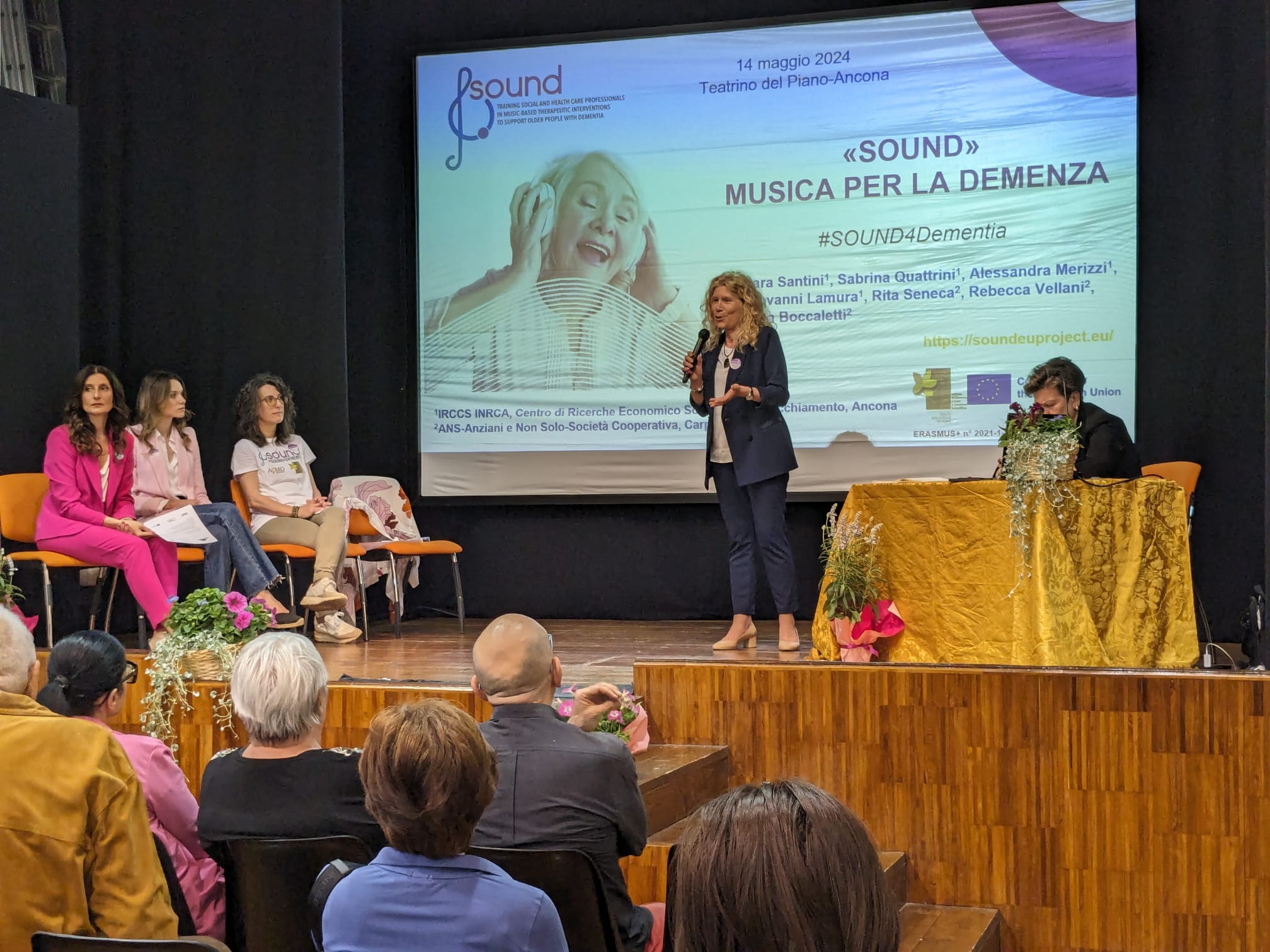|
The trial conducted in Italy by INRCA and ACMO spanned from October to December 2023, involving 15 older people with dementia (OPDs) and 15 dementia care professionals (DCPs), including psychologists, sociologists, speech therapists, and vocational educators. The participants were divided into two groups, each facilitated by either a singing teacher or a vocational educator, both trained in the SOUND method. Over the course of six consecutive weeks, each group held 12 meetings, which were closely monitored by researchers using scientific tools.
During these sessions, OPDs engaged in various musical activities, such as singing, story-telling with music pieces, dancing, and rhythmic exercises using small percussive instruments from the Orff kit. Throughout the intervention, researchers observed significant changes in OPD’s attitudes, transitioning from mistrust to confidence, apathy to full involvement, stillness to movement, aphasia to singing, and dislike to friendship. Additionally, DCPs were noted to exhibit increased smiles, improved empathy, and enhanced relationships with the patients.
This trial underscores the power of music as a medium to stimulate cognitive, motor, and social faculties in older people while also enhancing the caring and relational skills of dementia professionals. Such interventions should be integrated into every dementia care setting.
|

